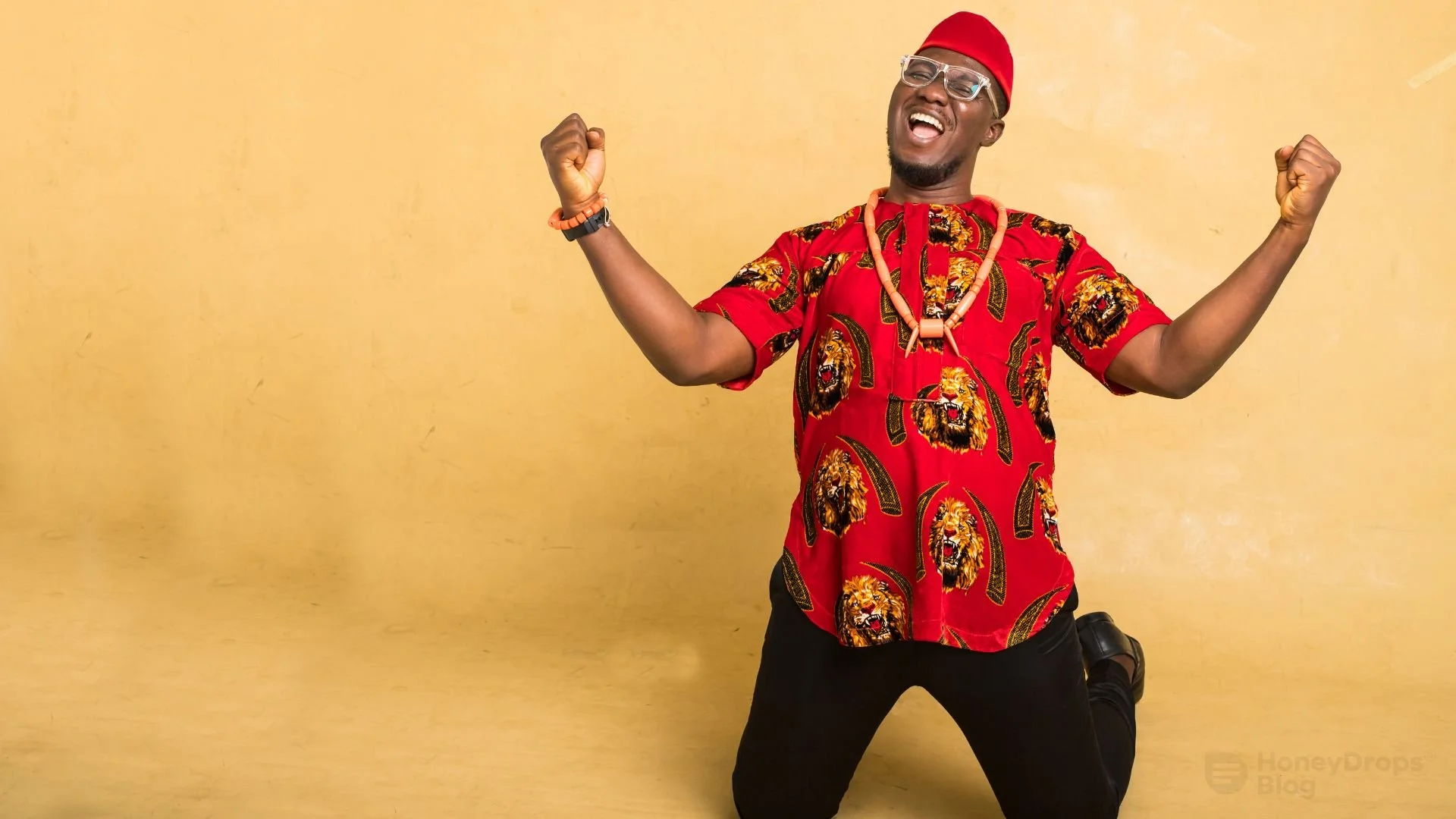From ‘Ọ́ dị mma’ to ‘Ihe a dị egwu’: Real-Life Phrases to React Like a Native
By: Chimdindu Ken-Anaukwu
Imagine watching a Nollywood movie without the characters saying “Chai!” or “Hia!” It would feel empty, right? In Igbo, reactions are half the conversation. They show not just what you think, but how you feel. For beginners, mastering these quick-fire responses is the fastest way to sound authentic, way faster than memorizing long textbook sentences.
Today, we’ll walk you through Igbo reaction phrases you can use in everyday life. Whether you’re impressed, shocked, annoyed, or just vibing, you’ll soon have the right Igbo phrase at your fingertips.
1. The Classic Positives: Approvals and Agreements
“Ọ́ dị mma.” → It is good / That’s fine.
Use this instead of the boring “yes.” It carries calm approval.“Eeh.” → Yes / Exactly.
Simple, short, and flexible. But it’s all in the tone—drag it for emphasis: “Eeeeh!”.“Ọ̀ dịghị njọ.” → It’s not bad.
Polite agreement without over-committing, perfect for Igbo-style modesty.
2. Excitement & Surprise: Show Your Feelings!
“Ihe a dị egwu!” → This is amazing / This is wonderful!
Say it when you’re genuinely impressed.“Chai!” → Wow / Oh my!
Probably the most famous Igbo exclamation worldwide, thank Nollywood.“Ewoo!” → Oh no!
Expresses shock or concern. Tone is everything; stretch it if the situation is serious.
3. Disbelief & Annoyance: Bring the Attitude
“Hia!” → What nonsense!
A sharp reaction for when someone is pushing their luck.“Kedu ihe a?” → What’s this?
Used both for real confusion or playful side-eye.“Anaghị m ekweta.” → I don’t agree.
More formal, but great for standing your ground.
4. Everyday Expressiveness: Sound Natural, Not Robotic
“Ị̀ ma?” → You know?
Used as a conversational filler, like “you see?” or “you get?”“Ọ dịghịkwa mma.” → That’s not good either.
Practical when weighing options or pointing out flaws.“Ehen!” → Exactly! / Go on.
A short, punchy way to keep the convo alive.
5. How to Master These as a Beginner
Listen to natives. Watch Nollywood, listen to Igbo podcasts, or pay attention to elders’ expressions.
Practice in context. Don’t just repeat; use these phrases in real conversations, even casually.
Play with tone. Many Igbo reactions change meaning with pitch or length. “Eeh” can be calm agreement or shocked surprise depending on delivery.
Final Thoughts: React Like an Igbo, Think Like an Igbo
If you want to sound like a native, don’t just learn vocabulary lists. Learn reactions; they’re the glue that makes conversations feel real, emotional, and human. From the polite “Ọ́ dị mma” to the dramatic “Ihe a dị egwu!”, these phrases will instantly upgrade your Igbo game.
And if you want to go beyond just reacting, to actually hold full conversations in Igbo, NKENNE has you covered. With lessons built around real-life language, you’ll speak with confidence, connect with culture, and maybe even drop a “Chai!” or two like a pro.
👉 Download NKENNE today and start speaking Igbo the way it’s truly spoken.




